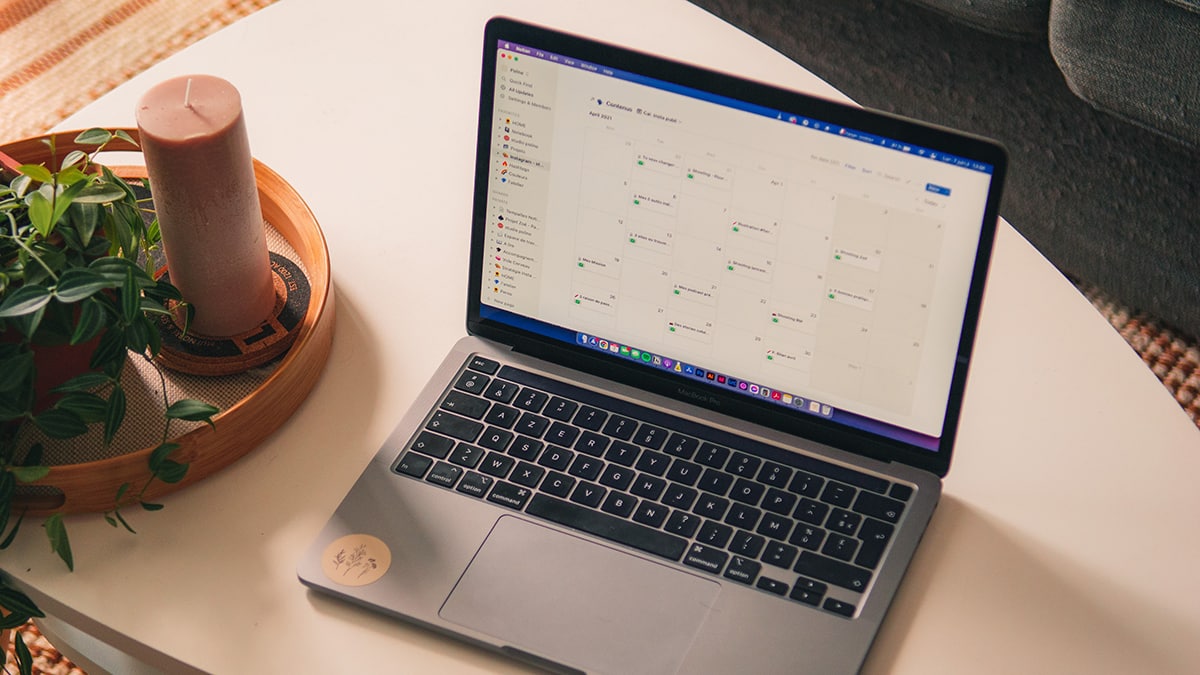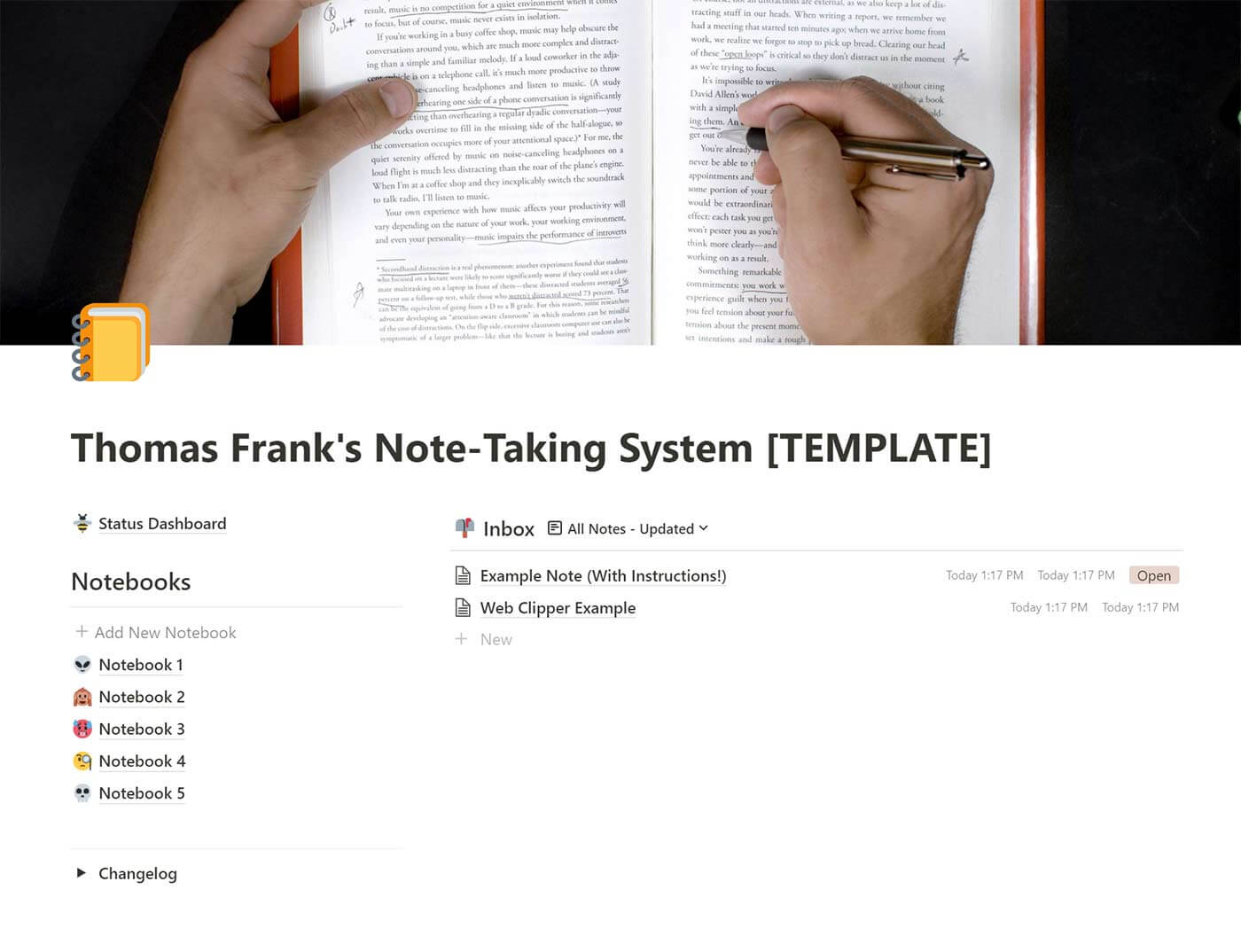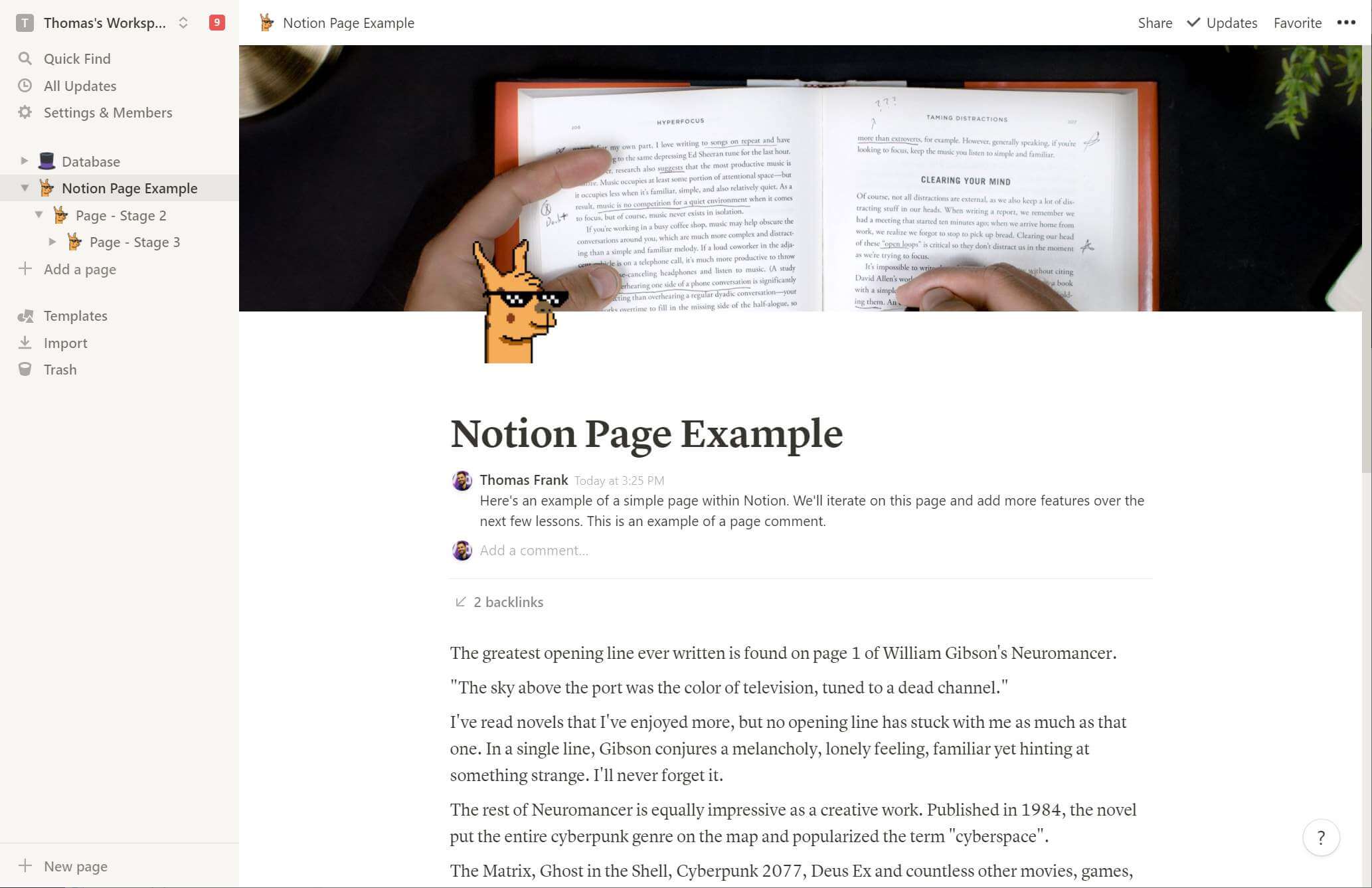If you’re a college student, you have a lot of balls in the air. There are your classes, to start. Then you have extracurricular activities, plus maybe a campus job or freelance gig. And, hopefully, you have time for exercise and nutritious meals here and there.
With so much happening, staying organized is key. But how are you supposed to manage all of the things going on in your college student life? There are lots of answers to this question, but Notion remains our top recommendation.
Notion is an app that combines the best of a to-do list app, project management app, and note-taking app. However, it’s flexible enough to serve far more purposes than these.
Below, we take a look at five ways Notion can help you succeed as a student. From collaborating on group projects to building good habits, you’ll be amazed at what you can accomplish with Notion.
Note: Students and educators can get Notion’s Personal Pro plan for free. Here’s how.
5 Ways Students Can Use Notion
Because of how much you can customize Notion to suit your needs, it would be impossible to cover every possible use case in one article.
Instead, I’ve chosen to focus on five specific areas where Notion can come in handy as a student. Consider this a jumping-off point, and be sure to check out the resources at the end to learn more.
Taking Notes
Notion’s writing features will feel familiar if you’ve used a word processor or note-taking app before. You have all the standard formatting you’d expect, from bold text to bulleted lists. But it’s beyond these basic features that things get interesting.
Let’s start with STEM courses. In addition to basic text, Notion supports math equations and symbols using the LaTeX syntax. From fractions to differential equations, Notion can display it. This opens up all kinds of possibilities for taking notes, as well as creating exam study guides.
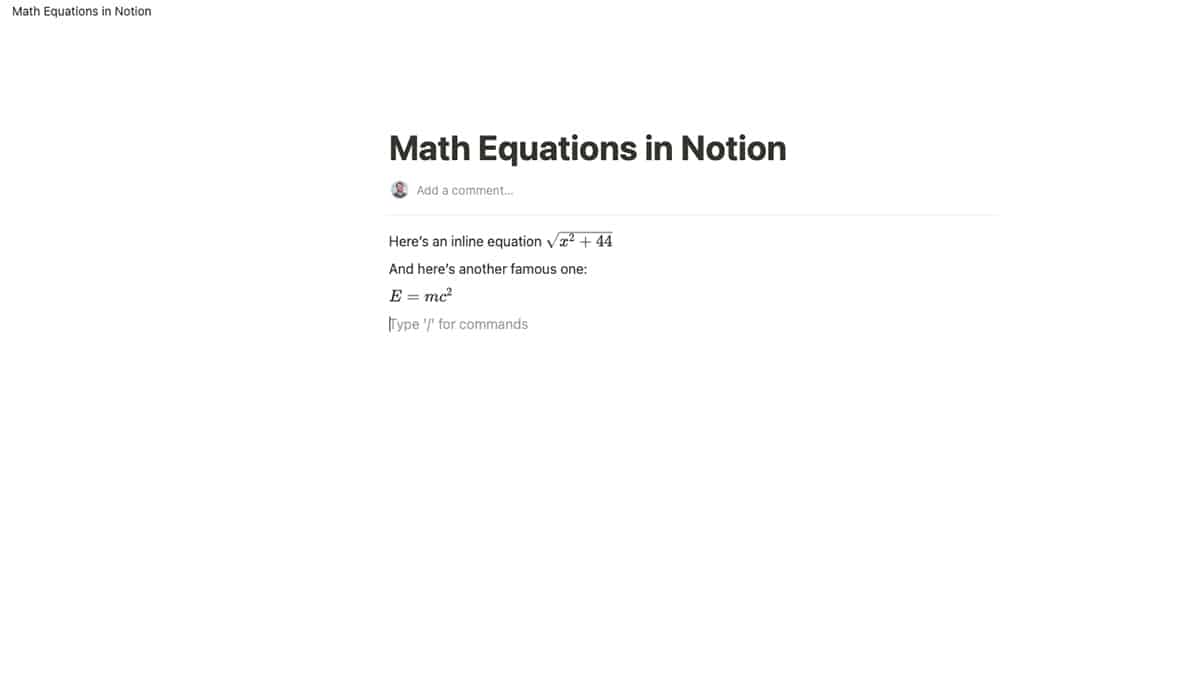
Furthermore, Notion makes it easy to embed (and arrange) all kinds of media. Find a YouTube video that explains a difficult concept? Embed it right in your notes. Taking an art history class? Add as many images as you want. Find a web page you want to reference? Import it instantly with the Notion Web Clipper.
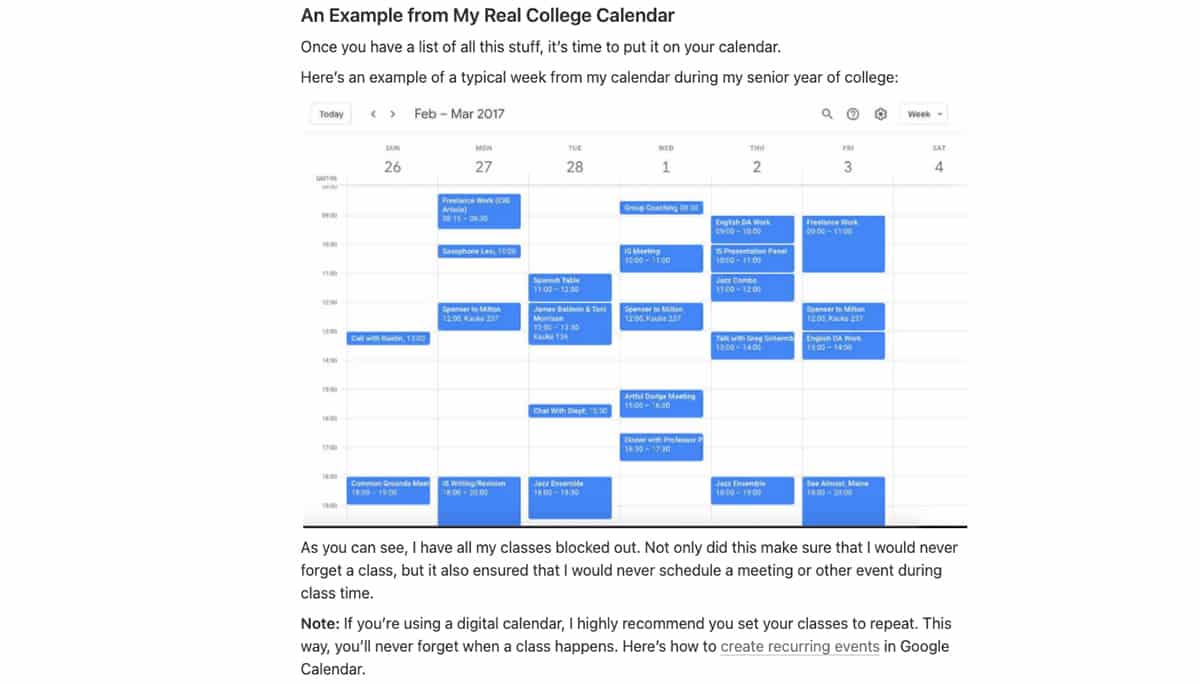
Finally, Notion offers you immense flexibility in organizing and navigating your notes. Since you can embed Notion pages within each other, you can create as much organizational hierarchy as you want. You can also choose to visualize your notes with a table, calendar, or just multiple columns on the same page.
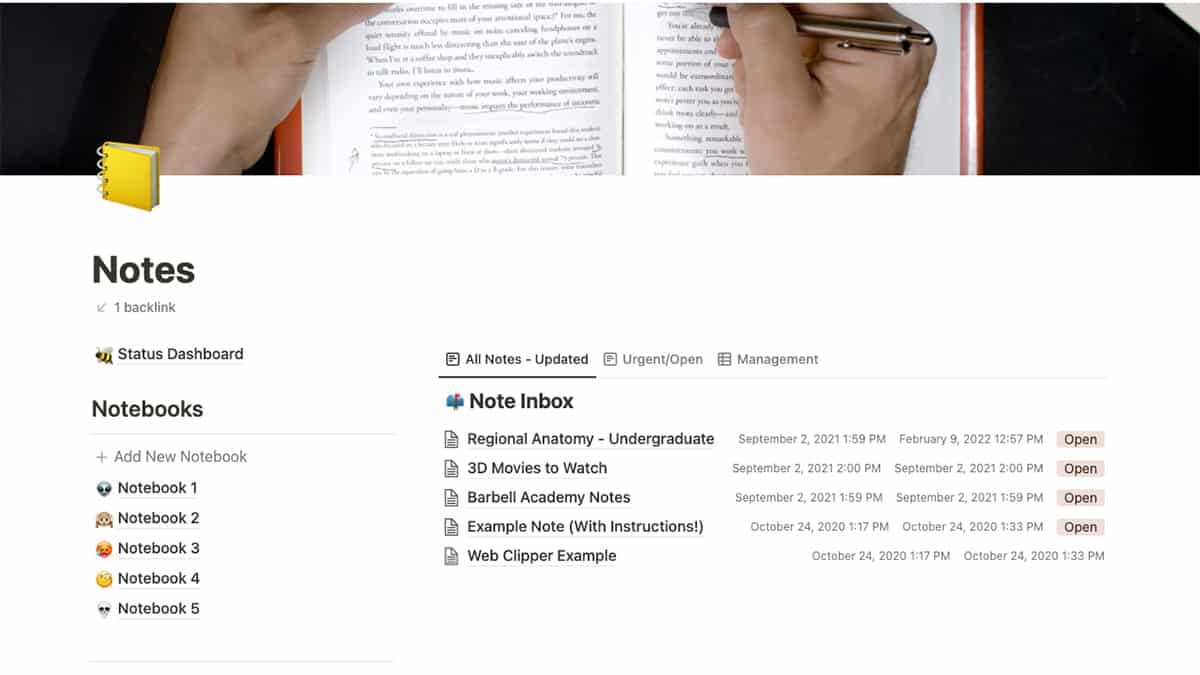
To get a sense of what’s possible with note-taking in Notion, check out our free template:
This template makes it easy to use Notion as your main note-taking system. It’s built with a handy Inbox for quickly capturing notes on the go, smart sorting features like Sub-Notebooks and Statuses, and (unlike other systems I’ve seen) allows you to access all your Notebooks from the Notion sidebar.
Managing Your Assignments and Schedule
Notion is great for organizing notes and other materials for a specific class. But you can also use it to keep track of your class assignments and other obligations.
As we mentioned in the intro, Notion has many to-do list and project management features. At the most basic, you can make checklists on any Notion page. And with Notion’s database features, you can set due dates, recurring tasks, and more. No matter the assignment, Notion will help you complete it.
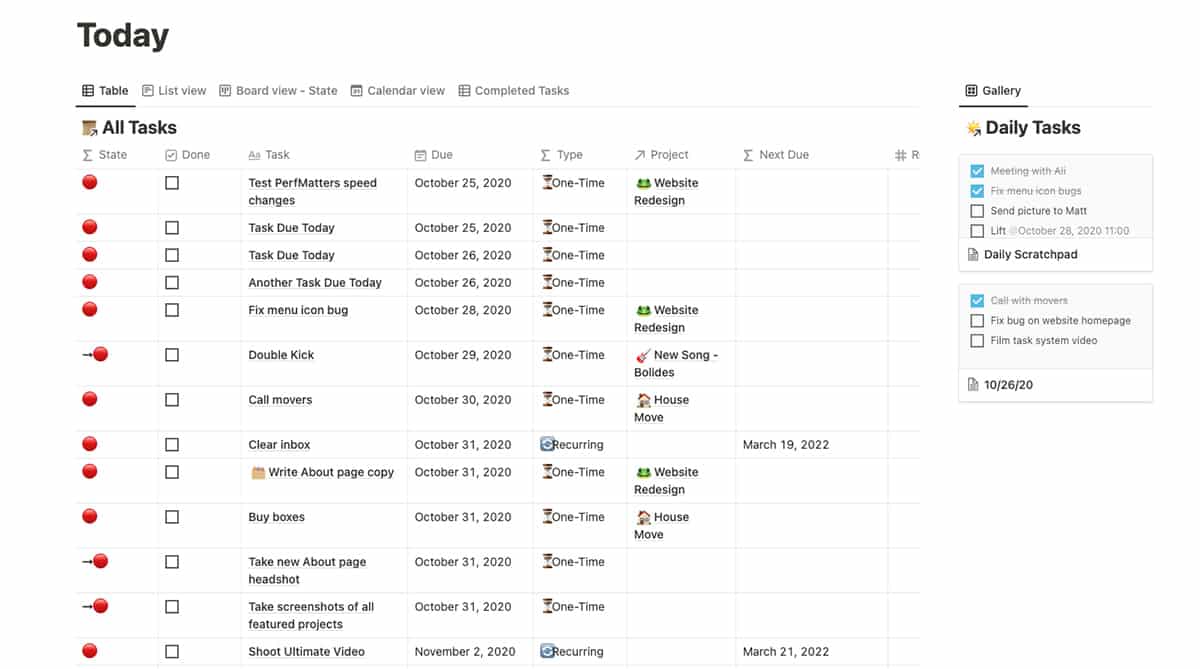
You also have lots of options for visualizing your assignments and class schedule. If you’re focused on when you need to complete an assignment, you can view all of your tasks on a calendar. But if you need to focus on how you’ll do an assignment, Notion will show your tasks on a kanban board.
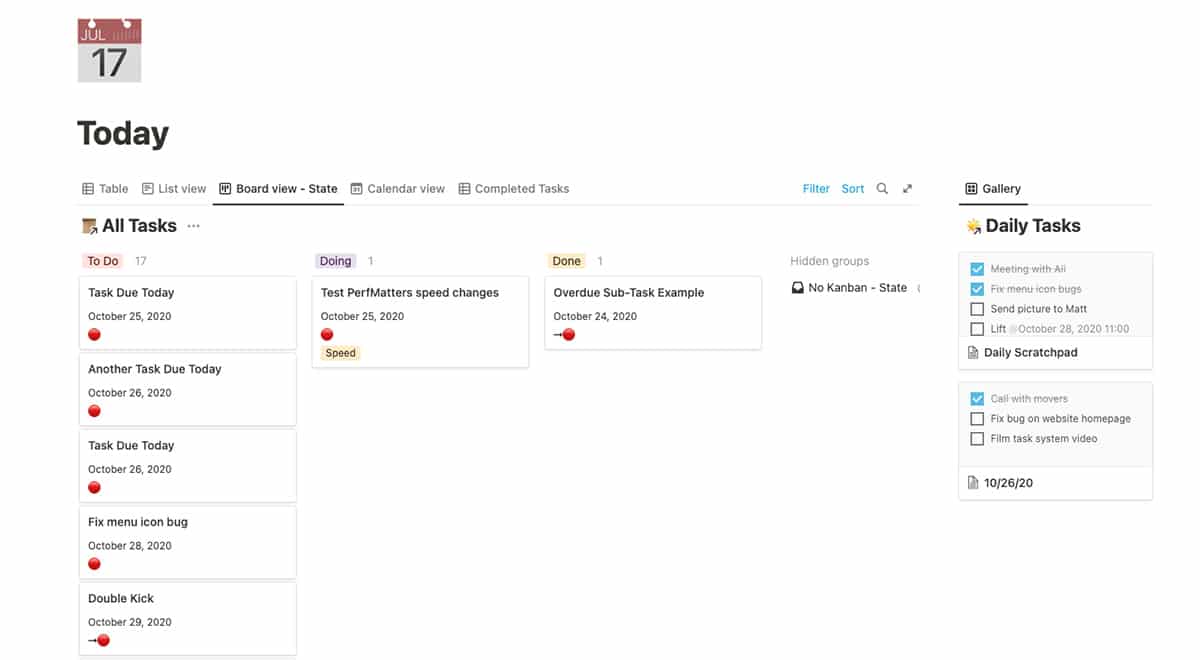
As a starting point for managing your assignments and schedule in Notion, have a look at this student dashboard template.
Group Projects
Nobody likes group projects, but you’re bound to be part of one at some point in your college career.
Aside from ensuring that everyone contributes, communication is one of the biggest challenges when doing a group project. Finding a time when everyone can meet outside of class is difficult, and coordinating things via text is a mess.
As an alternative, we suggest using Notion. It offers all the benefits of a more traditional app such as Google Docs:
- In-line comments let you discuss the project right on the page.
- Real-time, collaborative editing lets you work on the project even when you can’t meet in person.
- 30 days of version history lets you restore a page if someone accidentally deletes something.
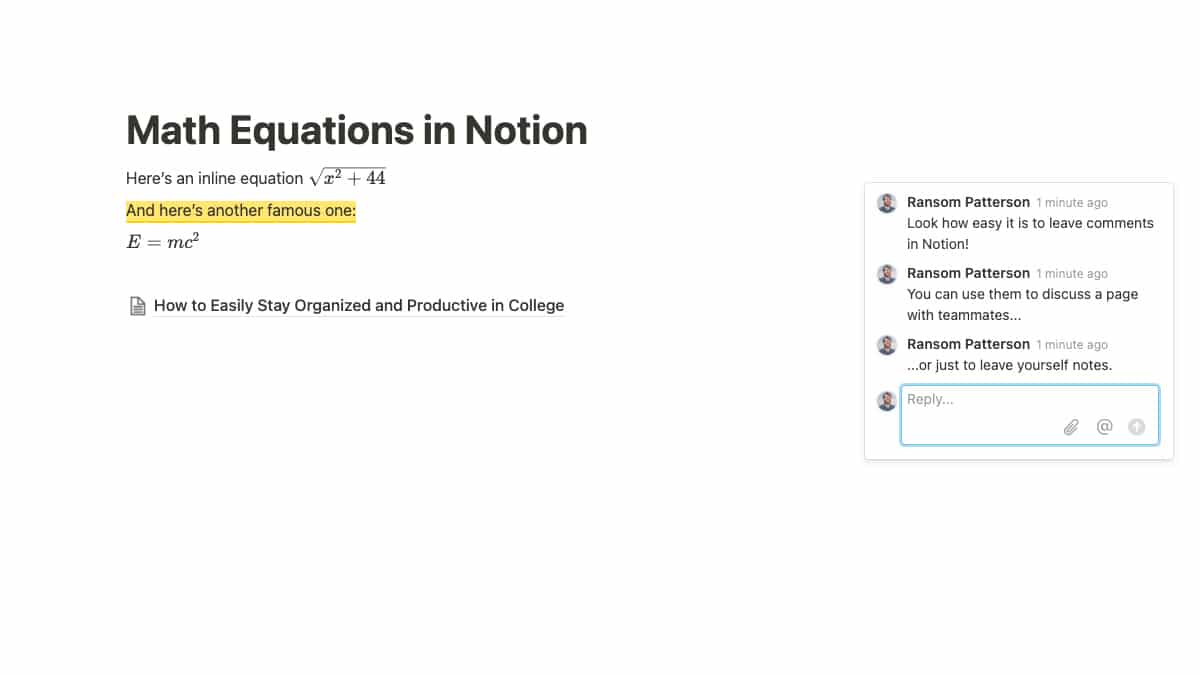
Notion doesn’t just clone Google Docs’ collaborative features, though. It also improves on some of Docs’ weaknesses.
Mainly, Notion makes it much easier to embed images and documents in your page. This will be helpful when working on anything highly visual or technical.
For instance, your group presentation on the structure of DNA will be a lot easier to prepare when you can embed images and videos of the molecule.
Networking
So far, we’ve focused on how to use Notion in your classes. But college is about more than studying. It’s also the time to start building your professional network. Any connections you can make now will build a foundation for professional success once you graduate.
Effective networking requires diligence and organization. You have to remember to follow up with people after you meet them (whether in-person or online). You need to keep notes on where you met, what you talked about, and other vital statistics. And you need to stay in touch with people you see infrequently.
In theory, you can do all of the above with a spreadsheet. But while spreadsheets are great at storing data, they aren’t so great at getting you to act on it. This is where Notion comes in.
Using Notion, you can combine the best features of spreadsheets and task management apps to turbocharge your networking efforts.
Notion’s database capabilities let you track contact info, topics of discussion, and other useful info about people you’ve met.
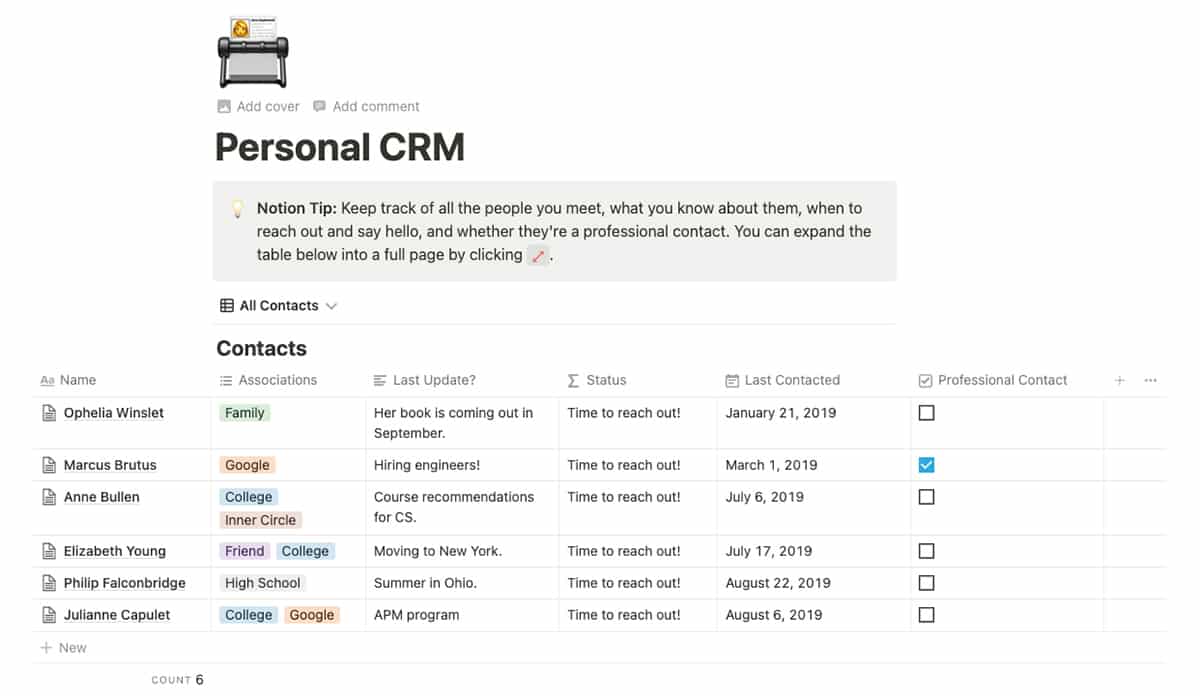
And once you have all that info in Notion, you can use the app’s task management features to remind you to follow up with new contacts or to nurture existing relationships.
To see what this looks like in practice, check out this free Personal CRM template.
Building Good Habits
If you aren’t careful, it’s easy to slip into unhealthy habits while you’re in college. Stress can lead you to eat junk food. The academic workload can make it easy to justify less sleep. And an overfilled schedule can leave no time for exercise.
None of this is inevitable, however. With the right plan and system in place, college can be the time to build healthy habits that will last a lifetime.
To learn how habits work, start with this guide. Once you have the basics, the next step is to track your habits. This includes good habits you want to build and bad habits you want to break.
There are lots of habit trackers out there. But if you don’t want to download yet another app, you can use Notion to track your habits. All you need is a checklist of what you want to do each day and a way to archive your progress.
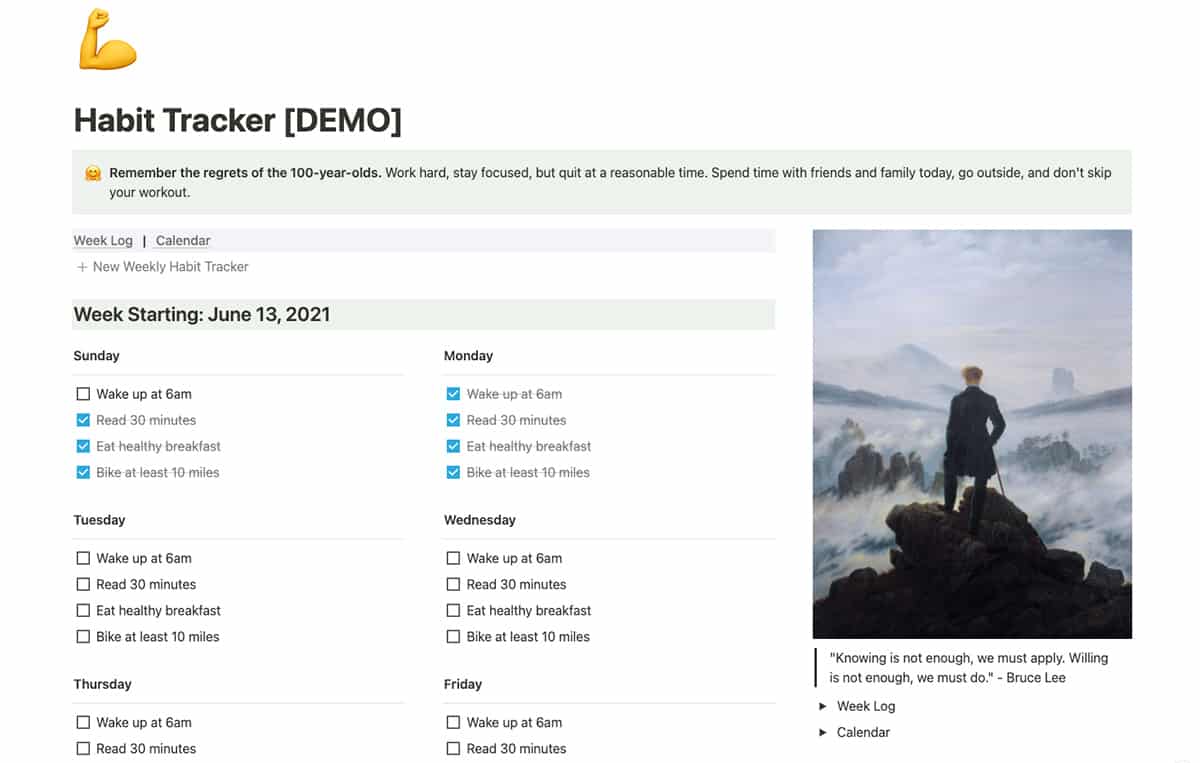
To get started tracking your habits in Notion today, try our free template:
With this minimalist habit tracker template, you’ll be able to create a weekly habit tracking sheet that you can use to track your goals and build positive habits. No complex features, no points systems – just an easy-to-use habit tracker that works perfectly on your computer or phone.
Start Using Notion to Manage Your Student Life
I hope this article has shown you some of the exciting ways you can use Notion as a student.
We just scratched the surface of everything possible with this app. Once you get some experience with Notion, you can start customizing it to fit your needs. You might even build a template worthy of inclusion in the official Template Gallery.
Before you can do such advanced things, however, you need to learn the basics. For this, we recommend our free Notion Fundamentals course. Find out more below:
Notion Fundamentals is an ongoing beginner’s course for learning how to use Notion. It’s 100% free, public, and full of examples and sample projects. We’ll start with a completely blank workspace and work through the basics of pages, blocks, links, databases, and more. By the end, you’ll be able to confidently use all of Notion’s features.
Image Credits: MacBook Pro on a table


